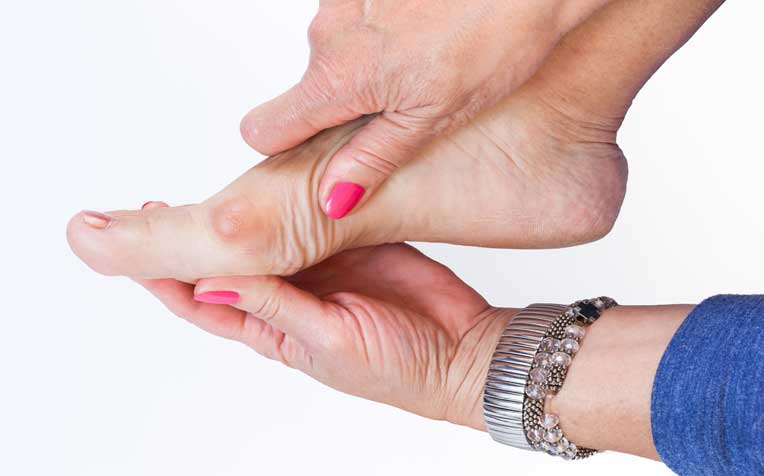
Got bunions? Avoid tight, narrow or high-heeled shoes that put pressure on the big toe.
Bunion treatment: What can the doctor do for me?
According to the Podiatry Department at Singapore General Hospital (SGH), a member of the SingHealth group, a doctor should be able to assess your feet and distinguish between deformity caused by another medical condition (such as gout or rheumatoid arthritis) and deformity caused by poor foot function, e.g. collapsed arches. During this time, you may be referred to a specialist.
Radiographs (X-ray films) of the foot may be required to evaluate the joints of the foot and to screen for underlying conditions, such as arthritis or gout. If a surgeon is planning foot surgery for you, X-ray films are also used to assess the alignment of the bones of the foot.
Bunion treatment includes alteration of footwear habits, orthotic shoe inserts, toe splints, anti-inflammatory or painkiller medications, steroid injections, and/or surgery:
- Anti-inflammatory medications can help to ease inflammation and pain, but will not address the root cause of the bunion
- Inflammation of the big toe joint can often be relieved by a local injection of corticosteroids. Like anti-inflammatory medications, this is a temporary measure and does not address the underlying cause
- If the bunion is caused by poor foot function, prescription shoe inserts can be used to address the root cause of the deformity. However, the degree of improvement from use of such inserts depends on the severity of the bunion at the time of treatment
- Stretching exercises of the forefoot are sometimes prescribed, together with use of toe splints. This is only effective if the bunion is mild and has not yet deformed the underlying bones and joints
When should surgery be considered for foot bunions?
For people whose bunions are severe, or whose bunions cause pain that impairs quality of life, bunion surgery may be indicated to correct the deformity. This procedure is medically referred to as a bunionectomy, an umbrella term that includes many different types of bunion surgery. It involves removing the bony growth while realigning the big toe joint, often with permanent hardware embedded in the foot (small metallic plates and screws).
With a successful outcome, bunion surgery can correct the underlying bone and joint misalignment, leading to improved foot function and long-term pain relief. It is up to the surgeon to answer the patient’s queries regarding the likelihood of successful outcome, as it depends on each individual patient’s overall health and the severity of the bunion.
With the correct diagnosis and treatment planning, all the methods described above can be effective in treating bunions, and the prognosis can be excellent. There is no need to live with a painful bunion, especially since it is often a progressive deformity that will get worse with time.
If you wait until the bunion is severe before seeking medical advice, your treatment options may be limited at that late stage. Therefore, consult promptly with a specialist if you think you or your child has a developing bunion.
Also, check out our article on bunion keyhole surgery.
Ref: R14
Contributed by
















